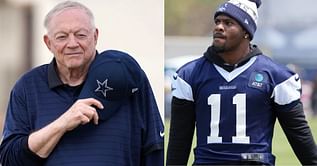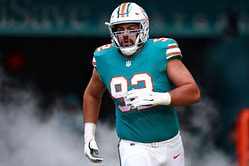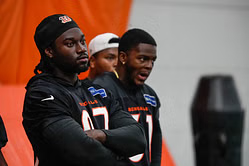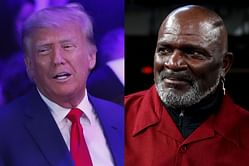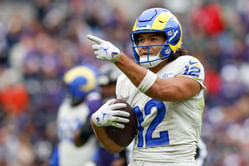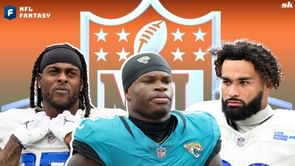Football, or as it's officially known, the National Football League (NFL), is an American institution that has captured the hearts and minds of millions of fans around the world. It's a high-octane sport that requires strength, skill, and strategy, as well as the ability to withstand bone-crunching hits and push through adversity.
The NFL is comprised of 32 teams, divided into two conferences: the American Football Conference (AFC) and the National Football Conference (NFC). Each conference is further divided into four divisions: North, South, East, and West.
During the regular season, which runs from September through December, each team plays 16 games, with the top teams in each division advancing to the playoffs. The playoffs culminate in the Super Bowl, the biggest sporting event in the United States and one of the most-watched events in the world.
The NFL is a unique blend of athleticism, drama, and spectacle, and whether you're a die-hard fan or a casual observer, it's an experience unlike any other. So grab your jersey, fire up the grill, and get ready for some football!
NEW YORK - APRIL 29: Former University of Texas quarterback Vince Young poses with NFL Commissioner Paul Tagliabue after being selected by the Tennessee Titans as the third overall pick in the 2006 NFL Draft at Radio City Music Hall on April 29, 2006 in New York City. (Photo by Ezra Shaw/Getty Images)
Types of Player Contracts
There are several types of player contracts in the NFL, each with its own set of rules and provisions. Here are the most common types of player contracts:
Standard player contract: This is the most common type of contract, which sets forth the terms and conditions under which a player will play for a team. These contracts include the player's base salary, signing bonus, incentives, and other bonuses.
Rookie contract: This is a standard player contract that is offered to incoming players who have just been drafted by an NFL team. The terms and conditions of these contracts are set by the NFL's collective bargaining agreement (CBA) and vary based on the player's draft position.
Franchise tag: This is a one-year contract that a team can use to retain a player who is scheduled to become a free agent. The tag guarantees the player a salary that is either the average of the top five salaries at his position or 120% of his previous year's salary, whichever is greater.
Transition tag: Similar to the franchise tag, the transition tag is a one-year contract that allows a team to retain a player who is scheduled to become a free agent. However, the salary offered under the transition tag is the average of the top 10 salaries at his position, and other teams have the opportunity to offer the player a contract that the original team has the right to match.
Restructured contract: This type of contract is typically offered to a player who is already under contract with a team but wants to renegotiate the terms of the deal. The player may agree to a reduced salary in exchange for a signing bonus or other incentives.
Each type of contract has its own rules and regulations, and the terms of the contract can have a significant impact on a player's salary, career, and future in the NFL.
Contract Negotiations
Contract negotiation is a crucial aspect of the NFL, as it determines the terms and conditions under which players will play for a team. Negotiations typically involve the player's agent, who represents the player's interests, and the team's front office, which represents the team's interests.
During negotiations, both sides will typically make initial offers and counteroffers until they reach a mutually acceptable agreement. The negotiations can be contentious at times, as both sides seek to maximize their financial and strategic interests.
The NFL's collective bargaining agreement (CBA) sets certain rules and guidelines for contract negotiations, including rules around salary caps, guaranteed money, signing bonuses, and other incentives. Teams must also comply with the league's rules on minimum salaries and salary escalators.
One important factor in contract negotiations is a player's performance and potential value to the team. Teams may offer more money and incentives to players who have proven themselves on the field or who have the potential to be top performers in the future. Conversely, teams may offer lower salaries to players who have underperformed or who are considered more replaceable.
Another factor in contract negotiations is a player's age and position. Certain positions, such as quarterbacks and defensive ends, are generally paid more than others, and players who are younger and have more potential may be offered longer and more lucrative contracts.
Overall, contract negotiation is a complex and dynamic process in the NFL, and the outcome of negotiations can have a significant impact on a player's career and future in the league.
Impact of Contracts on Teams
Contracts have a significant impact on NFL teams, as they determine how much money the team must spend on player salaries and incentives. Here are some ways that contracts can affect teams in the NFL:
Salary cap management: The NFL has a salary cap, which limits how much money teams can spend on player salaries each year. Teams must manage their contracts carefully to ensure they have enough cap space to sign and retain top players, while also staying under the cap limit.
Roster flexibility: Contracts can also impact a team's ability to make changes to its roster. Long-term contracts with guaranteed money may limit a team's ability to cut or trade a player without incurring significant financial penalties.
Player motivation: Contracts can motivate or demotivate players. Players who feel they are underpaid or undervalued may be less motivated to perform at their best, while players who receive large contracts may feel pressure to live up to high expectations.
Free agency: When a player's contract expires, he becomes a free agent and can sign with any team he chooses. Teams must decide whether to re-sign their own free agents, pursue free agents from other teams, or let their players go and focus on building through the draft.
Team culture: Contracts can also impact a team's culture and chemistry. Teams that offer generous contracts to top players may create resentment among other players who feel they are not being fairly compensated. Conversely, teams that promote a culture of shared sacrifice and team-first mentality may prioritize team-friendly contracts over individual rewards.
Overall, contracts play a significant role in shaping the direction and success of NFL teams. Teams that manage their contracts wisely, balance individual incentives with team goals, and create a positive team culture are more likely to achieve sustained success in the league.
Future Trends
The NFL is constantly evolving, and there are several trends that may impact player contracts in the future. Here are some potential future trends that the NFL may lean towards when it comes to player contracts:
Performance-based contracts: As teams seek to maximize their return on investment, we may see a shift towards performance-based contracts that tie a player's compensation to their on-field performance. This could incentivize players to perform at a higher level and could help teams avoid overpaying for underperforming players.
Shorter contracts: The NFL has already seen a trend towards shorter contracts in recent years, as teams seek to maintain flexibility and avoid being locked into long-term deals with players who may not live up to their potential. Shorter contracts can also benefit players, who have more opportunities to renegotiate their deals and seek higher salaries as their performance improves.
Guaranteed contracts: Unlike other professional sports leagues like the NBA and MLB, the NFL does not currently offer fully guaranteed contracts. However, this could change in the future as players seek more financial security and leverage in contract negotiations.
Analytics-driven contracts: As the use of data and analytics becomes more widespread in the NFL, we may see teams and players use advanced metrics to inform contract negotiations. For example, a player's value could be determined not only by their on-field statistics but also by advanced metrics that measure their efficiency and impact on team success.
Collaborative negotiations: Negotiations between players and teams are often contentious, but there could be a shift towards more collaborative negotiations in the future.
